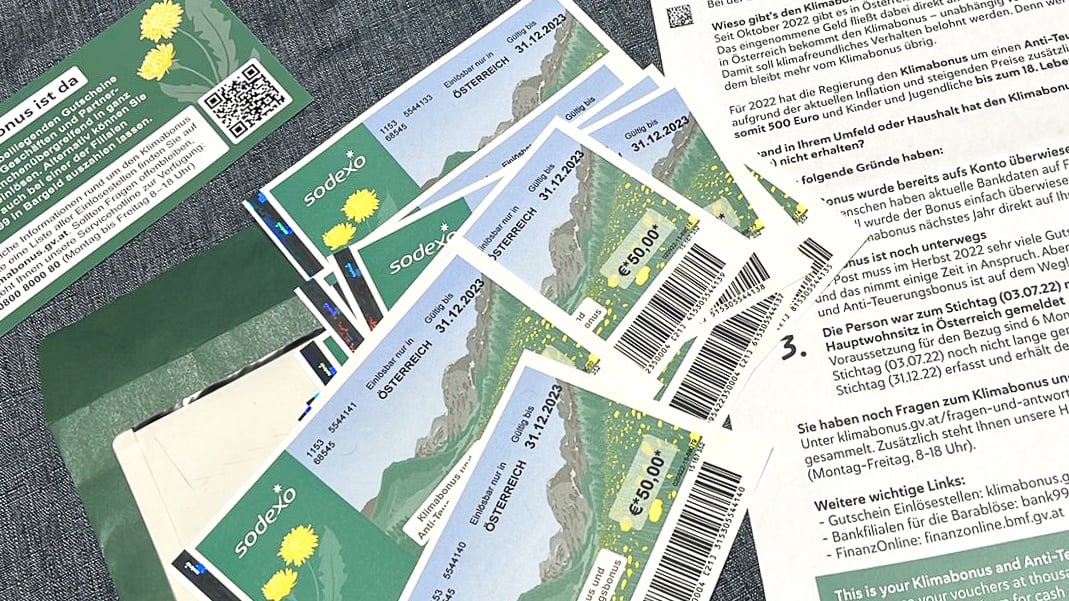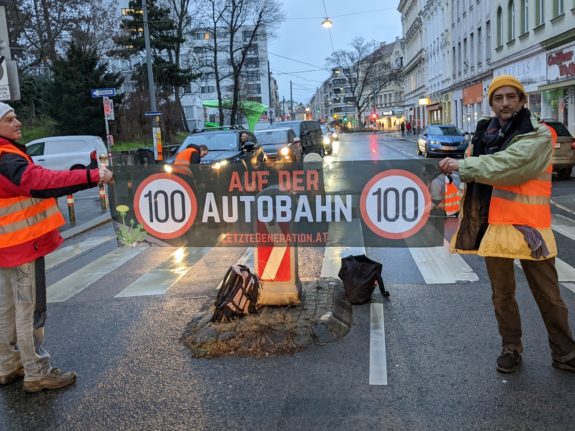Austrians celebrate National Day
People in Austria can enjoy a public holiday this month, as the nation celebrates its National Day on Thursday, October 26th.
On this day in 1955, Austria signed its so-called Declaration of Perpetual Neutrality, although the date has only been a public holiday since 1965.
The Declaration marked the end of the Allied occupation of Austria by British, American, French and Soviet Union forces, who had controlled the country since World War II in 1945.
On Austrian National Day, the Federal President usually addresses the nation on TV, honouring the victims of the war and laying a wreath at the Tomb of the Unknown Soldier. This is also the day when Austrian Armed Forces recruits are sworn in.
Locally, there can be some military celebrations, while most shops and businesses will remain shut.
READ MORE: What is Austrian National Day and why is it celebrated?
Coffee capsule recycling project
Austrians love their coffee – in fact they drink an average of three cups per day, according to research.
But coffee capsules, which are used in coffee machines, are often not disposed of properly. So on October 1st a new recycling initiative will start.
Coffee lovers can hand in aluminum and plastic capsules, as well as home-compostable capsules of all brands, in specially designed containers at all waste collection centers in Upper Austria, Krems-Land and Schwechat. In addition, purple bins are available as a collection point in Schwechat.
READ ALSO: How to drink coffee like an Austrian
The project is set to last until the end of March 2024 and is supported by the Coffee Association as well as the capsule manufacturers Costa Coffee, Jacobs Douwe Egberts, Nestlé, Billa, Segafredo, Tchibo and Eduscho.
Dr. Johann Brunner, Managing Director of the Austrian Coffee and Tea Association called it a ‘groundbreaking project for resource conservation and underlines the collective efforts of companies and consumers to create a more environmentally friendly future’.
After the capsules have been handed over, they are sorted professionally and the aluminum or plastic is separated from the coffee residue in order to prepare them for subsequent recycling. The recycled aluminum can be reused for bicycles, pocket knives and soda cans or for new capsules. The plastic material is also recycled and used in new products, while coffee grounds can also be used for other purposes.
Klimabonus payments should be complete
The latest Klimabonus payouts should be received by everyone eligible in Austria by the end of October.
Anyone who receives the payment via bank transfer should have had it transferred by the end of the second week of September.
Postal deliveries, however, will take place until the end of October.

The Federal Ministry for Climate Protection in Austria said that more than 8.5 million people receive the climate bonus. Almost 7.5 million of them get the money through a bank transfer and around one million by post. People receive a voucher by mail that can be redeemed in thousands of stores.
The climate bonus is a part of Austria’s eco-social tax reform, a set of measures to promote climate protection. It includes a tax on CO2 emissions, which increases fuel prices and affects Austrian drivers. The annual Klimabonus aims to offset this expense.
The amount people receive depends on where they live.
READ ALSO: Why might I not receive a Klimabonus payment in Austria?
Sip the last of the Sturm
Sturm, which is an alcoholic beverage in Austria made from the first grapes of wine harvests, will soon be out of reach.
That’s because the Sturm season usually comes to an end in mid-October.
Up until then you can find the cloudy drink in some bars, restaurants and Heuriger (traditional Austrian taverns).
READ ALSO: Sturm – Why you should try Austria’s traditional autumn drink
School holidays
The Herbstferien (autumn holidays) will arrive for schoolchildren, teachers and other support staff in Austria near the end of the month.
This year the break runs from Friday, October 27th, to Tuesday, October 31st.
Viennale returns
Vienna’s international film festival, Viennale is back soon.
The annual event, which takes place from October 19th to October 31st this year, will include feature films from Austria, Argentina, France, Belgium and the USA to name but a few.
Screenings take place at various venues across Vienna, such as Gartenbaukino on Parkring, Stadkino im Künstlerhaus and Urania on Uraniastrasse.
The full Viennale programme will be published on October 10th at 8:00 pm.
READ ALSO: The best festivals and events taking place in Austria this autumn
Wind the clocks back
There’s good news for those who fancy more time to sleep (or party).
During the night of Saturday, October 28th and Sunday, October 29th, clocks in Austria will be set to wintertime. It means that at 3am on the 29th, the clocks go back to 2am, making the night an hour longer.
The bad news is that it will get darker earlier in the evening.
The shift is occurring despite lots of talk about the seasonal clock changes being abolished in the EU.
Time for jumpers and jackets
It’s been a fairly warm start to the autumn season so far. But October is the month when it can get much chillier in Austria.
Average October temperatures in Austria are between 7C and 15C, depending on where in the country you are.
On average, October has about 11 rainy days and six hours of daylight per day.



 Please whitelist us to continue reading.
Please whitelist us to continue reading.
Hi Family Local! I have been a subscriber for some years and you will know from correspondence rather crestfallen over the fact that actual daily news is restricted to a three article template. However, good news from me, this monthly digest concept is a friendly marvel and I would raise my hand to its further continuation. THX ! Naturely, I will continue to pray for an increase in price for a increase in daily news and little special news article segments devoted to exposing commerce in Austria